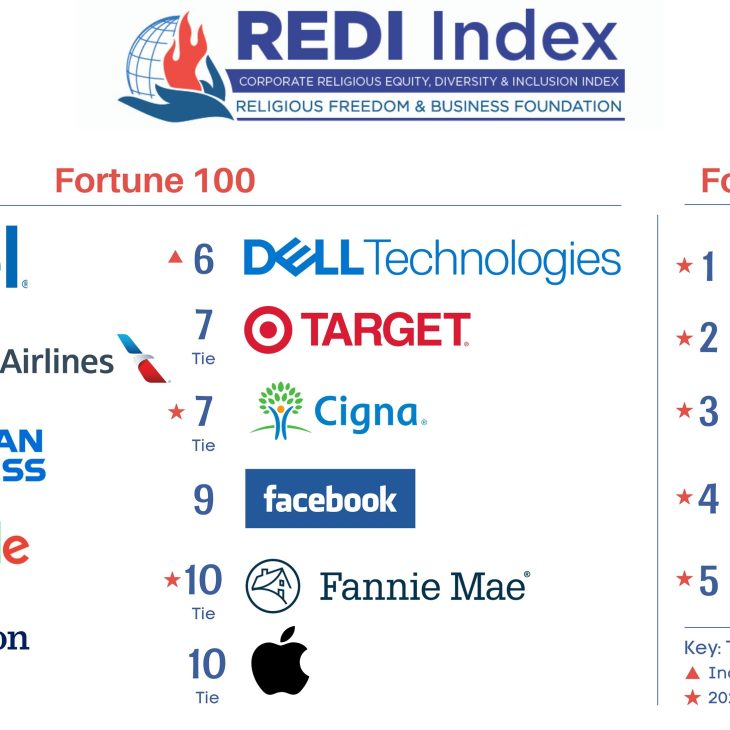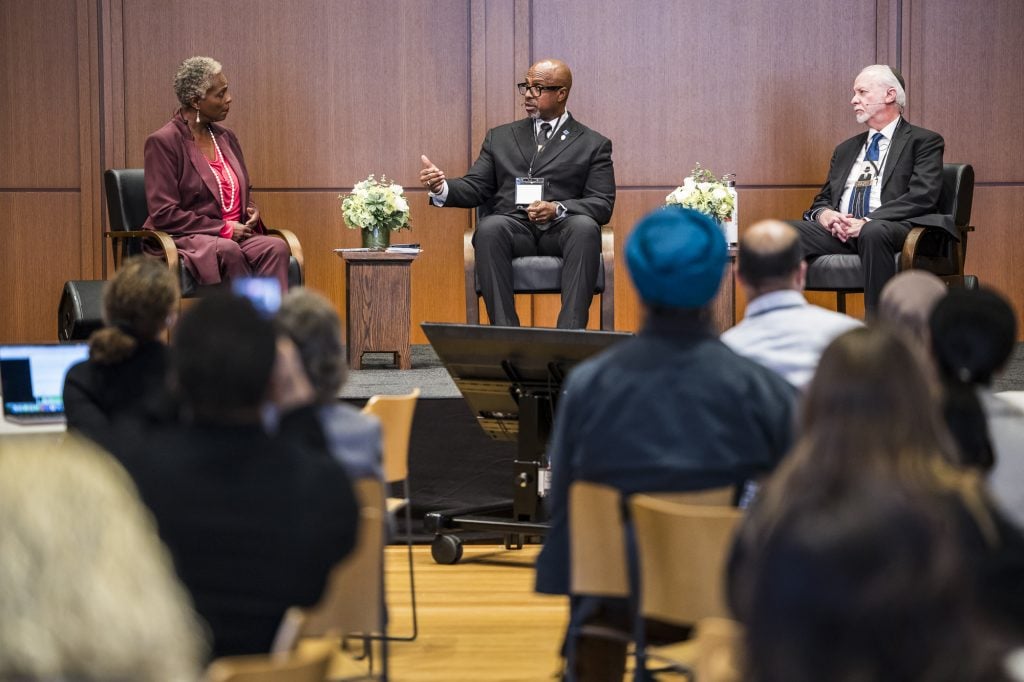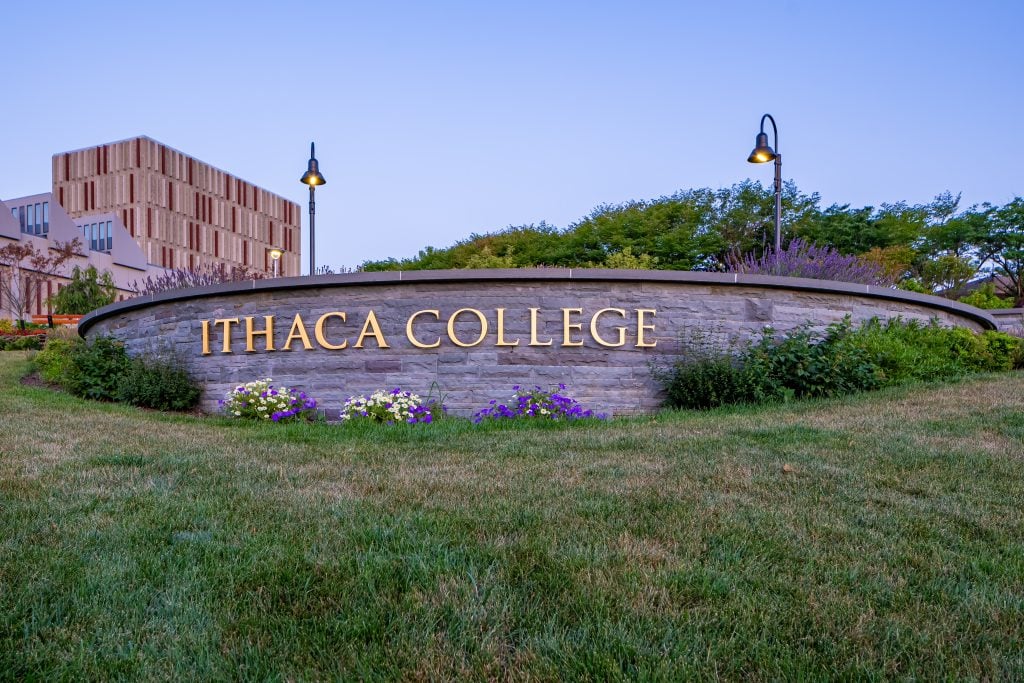Intel Leads Tech-Dominated List Of Religiously Inclusive Workplaces
February 25, 2021

(RNS) — Intel and Texas Instruments are the two most religiously inclusive workplaces among the United States’ 200 largest companies, according to the 2021 Corporate Religious Equity, Diversity and Inclusion Index ( REDI Index ) published on Feb. 9. American Airlines, American Express, Google and PayPal also earned top scores.
The REDI Index measures the religious inclusion of Fortune 100 and Fortune 200 companies in three categories: promotion of religion on their website’s diversity page, number of company-sponsored religious employee resource groups (also referred to as ERGs ) and whether they host public trainings on religious diversity.
The Religious Freedom & Business Foundation launched the REDI Index last year. According to Brian Grim, the organization’s founding president, the Index aims to “highlight the best practices of companies who are making their workplaces faith-and-belief-friendly in the hopes that they become models for other companies.”
Intel, which ranked second on the REDI Index last year, overtook Google, last year’s top company, by 10 points in 2021. Intel’s public conference on religious inclusion earned it the extra boost.
Intel’s ranking is also thanks in part to its ERGs. Six of Intel’s 33 company-sponsored ERGs are explicitly faith or belief-based, including a group for “Agnostics, Atheists and Allies.”
Intel is also the only Fortune 200 company to have a group dedicated to Baha’i, a religion based largely in the Middle East with about 8.5 million followers worldwide.
“You have one of the largest, most successful big companies in the world recognizing one of the smallest — in terms of numbers — world religions in the world and including them,” said Grim. “That’s just a picture of what goes on inside of Intel. There’s a place at the table for everyone.”
Texas Instruments was one of the first companies in corporate America to incorporate religion into its diversity efforts — its Muslim, Christian and Jewish ERGs have been around since 2001.
“These groups often collaborate and host events with each other and across other TI employee resources groups,” said Yesenia Moore, Texas Instruments’ vice president of diversity and inclusion, in an email to Religion News Service. She said the goal of these gatherings is to “provide our employees with opportunities to learn more about their colleagues’ beliefs and traditions.”
While not all the top-scoring companies are in tech, many are. Grim suggested that prioritizing spirituality in such competitive fields could give companies an edge. “When workplaces are inclusive around topics that matter to you, it becomes not just a place where you’re collecting your paycheck, but a place where you want to stay,” he said.
This year, the REDI index added Fortune 200 companies to its assessment. The results showed that a company’s size doesn’t necessarily predict its religious inclusivity — both Intel (a Fortune 100 company) and Texas Instruments (a Fortune 200 company) earned the same top score of 29.
American Airlines and American Express, both Fortune 100 companies, tied for third with Fortune 200 company PayPal. All three companies followed 7 points behind the top scorers.
Grim said that while only about 20% of Fortune 100 companies currently have company-sponsored ERGs dedicated to belief or religion, other companies are starting to catch on.
“Now companies like Intel, Texas Instruments and Google are holding public seminars to share their best practices with other companies,” said Grim. “I see that as a sign that this isn’t just niche, but is now mainstream.”
Between 2020 and 2021, seven Fortune 100 companies added religious inclusion to their diversity efforts and achieved a score on the REDI Index for the first time. The Religious Freedom & Business Foundations’ Faith@Work Conference in early February also highlighted the growing momentum around religious inclusion — the conference hosted 75 companies and 400 participants, including 11 Fortune 500 executives.
“These corporations are modeling how to come together around the freedom to have faith, change it or have no faith at all,” said Grim. “And they’re embracing that freedom in a way that isn’t political or divisive, but is inclusive of everyone.”
Share
Related Articles



